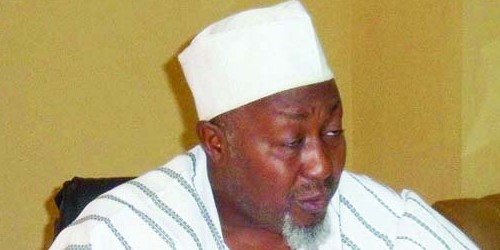Governor Badaru Abubakar of Jigawa State has said his administration is working closely with the Department for International Development to improve the state’s revenue by 75 per cent in 2016.
Abubakar told the News Agency of Nigeria that as part of efforts to improve the state’s revenue, his administration would reduce recurrent expenditure by 50 per cent and block leakages in government operation.
According to him, the collaboration with DFID will help reinvigorate agriculture, encourage the development of the mining sector and encourage the growth of the real sector of the economy.
He said: “With dwindling oil prices, we have to focus on creating an economy for our dear state.
“People have to be busy, have to have jobs and good life.
“So, we are really focusing on economic and human development.
“First, increase the economy, increase the non-dependence on oil.
“Through that, you will create jobs.
“And to create jobs, you have to train people very well in education, to able to do the job and you need to have healthy people to do the job.
“So, if you are creating wealth, you have to do all the social needs of the people.”
According to Abubakar, the state government has entered into partnership with various investors for the establishment of rice, sugar, tomato, marbles, tiles, shoes and polythene production factories in the state.
He explained that the partnership was in a bid to diversify the economy and encourage effective use of available agricultural resources.
He added the collaboration would help the state accelerate industrial development, enhance employment generation and create wealth.
The governor stated that the plan of his administration is to build a state that will be self-sustaining.
Abubakar said: “I want to have a Jigawa State where we will wake up one day and say ‘we have self-sufficiency, grant or no grant, we’ll survive and move on’.
“I want to have a state that government’s workers salaries will no longer be an issue.
“So, the dream is to create a self-sustaining and self-reliant economy for the state.”


